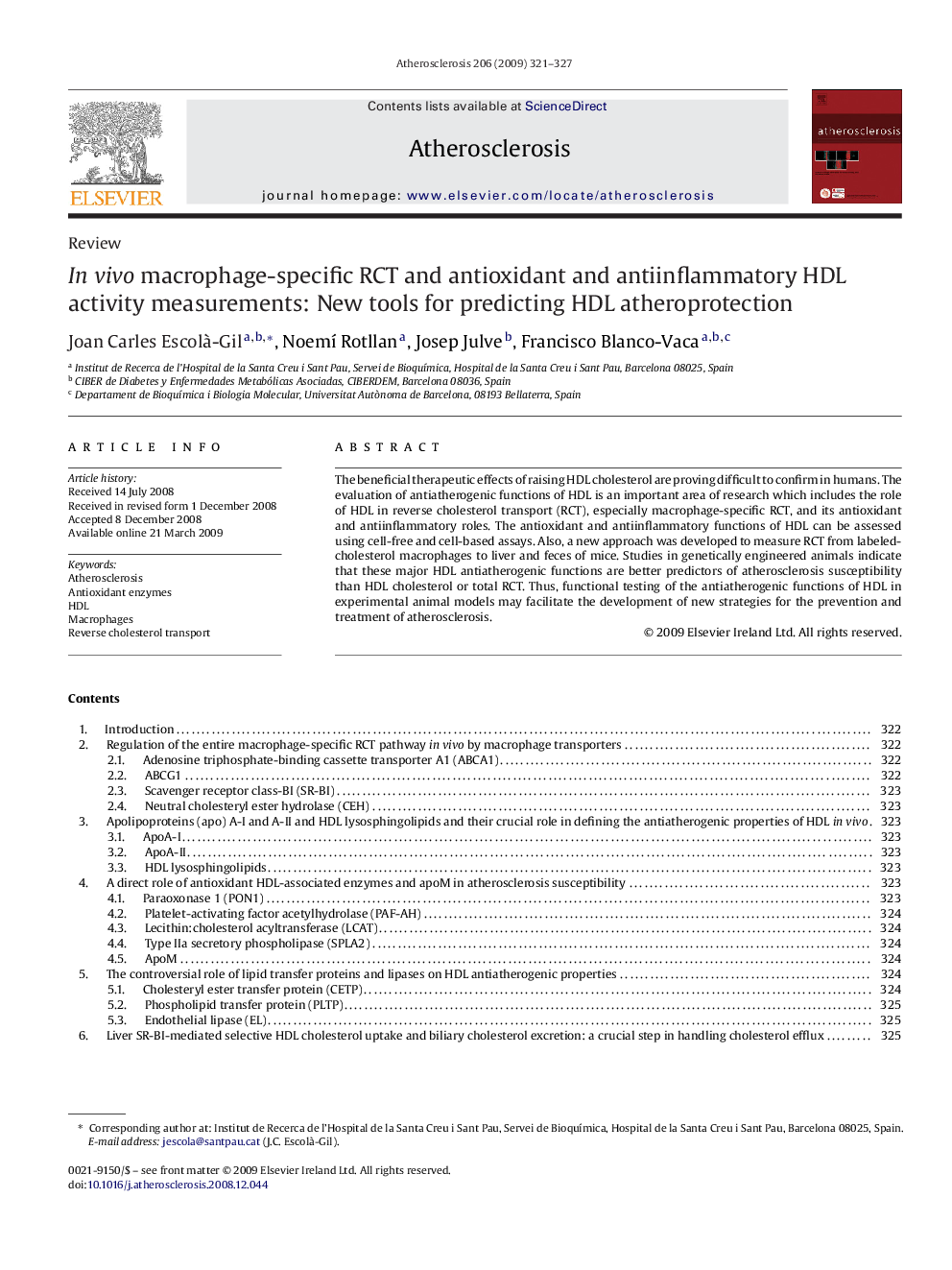| Article ID | Journal | Published Year | Pages | File Type |
|---|---|---|---|---|
| 2893406 | Atherosclerosis | 2009 | 7 Pages |
The beneficial therapeutic effects of raising HDL cholesterol are proving difficult to confirm in humans. The evaluation of antiatherogenic functions of HDL is an important area of research which includes the role of HDL in reverse cholesterol transport (RCT), especially macrophage-specific RCT, and its antioxidant and antiinflammatory roles. The antioxidant and antiinflammatory functions of HDL can be assessed using cell-free and cell-based assays. Also, a new approach was developed to measure RCT from labeled-cholesterol macrophages to liver and feces of mice. Studies in genetically engineered animals indicate that these major HDL antiatherogenic functions are better predictors of atherosclerosis susceptibility than HDL cholesterol or total RCT. Thus, functional testing of the antiatherogenic functions of HDL in experimental animal models may facilitate the development of new strategies for the prevention and treatment of atherosclerosis.
